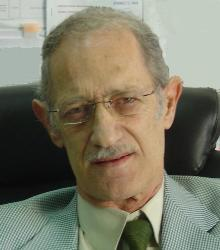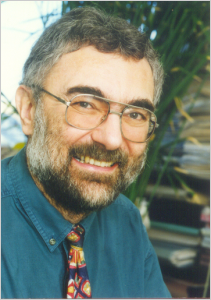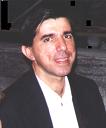15-th ACM MSWiM 2012
Keynote Speakers
In addition to scientific papers, the MSWiM 2012 program includes distinguished Keynote Speakers.
Date: October 22nd, 2012 Opening Address: Transparency in the scope of Net Neutrality
Dr. Polys Michaelides
Commissioner of Telecommunications and Postal Regulations
OCECPR - Cyprus
Abstract:
The recent technological developments and the wide availability of broadband services have brought a focus on the issues of Traffic Management and the need of end-users (consumers, business customers and other beneficiaries) to have the ability to make informed choices regarding prices, and quality of services that best fits their needs. The new Electronic Communications framework considers Transparency as a key element in order to achieve Net Neutrality. The subject of transparency is discussed in relation to Net Neutrality by exploring the new regulatory context by presenting the recent BEREC work in this field.
Short Bio: Since January 2009, Dr Polys Michaelides serves as the Commissioner of Electronic Communications and Postal Regulation of the Republic of Cyprus. Before this appointment he was the Director General of the Geological Survey Department of Cyprus. Dr Polys Michaelides graduated from the University of Innsbruck in Austria with M.Sc. (1971) and Ph.D. (1973) in Geology. He continued (1974 – 1975) as a Postdoctoral researchers in Geomechanics at the University of Munich, Germany. He is also a holder of diploma in Business Administration from the Productivity Centre in Nicosia (1987 – 1988) and in Effective Management from the Henley Institute Oxfordshire of U.K. He is a writer of a great number of scientific publications, both at home and abroad. He is the founding member of the Cyprus Scientific Technical Chamber (ETEK), a member of various scientific associations and, also, member of the European Regulators Group (ERG), of the Independent Regulators Group (IRG) and of the Body of European Regulators of Electronic Communications (BEREC).
Keynote title: The Myths, Realities and Future of Cooperative Communications
Prof. Lajos Hanza
University of Southampton
UK
Keynote abstract:
In multi-user cellular networks the cooperating mobiles may share their antennas in order to achieve transmit diversity by formig a virtual antenna array (VAA), which are also referred to as distributed MIMOs. In contrast to the colocated MIMO elements, the distributed antenna elements no longer suffer from correlated fading, which often severely limits the achievable performance of colocated MIMO elements owing to their insufficient spatial separation. However, VAAs also impose their own limitations, such as for example halving the attainable throughput owing to their imability to transmit and receive simultaneously. Furthermore, it is unrealistic to expect that the mobile relays would be able to estimate the channel between the source and the relay, hence they should dispense with channel estimation all together and rely on low-complexity non-coherent detection. In this brief recital we consider a range of vital design issues, such as the redefined resource-allocation problem of cooperative systems, including cooperating-user-selection (CUS) and adaptive-power-allocation (APA) for both the differentially modulated low-complexity amplify-and-forward (DAF) scheme and for the more sophisticated differential-decode-and-forward (DDF) assisted systems. We highlight the benefits of a hybrid DAF/DDF scheme, mitigate the detrimental effects of high Doppler frequencies with the aid of multiple-symbol differential detection and reduce the complexity with the assistance of sphere detection.
Short Bio: Lajos Hanzo, FREng, FIEEE, FIET, Fellow of EURASIP, DSc received his degree in electronics in 1976 and his doctorate in 1983. In 2009 he was awarded the honorary doctorate ``Doctor Honoris Causa'' by the Technical University of Budapest. During his 35-year career in telecommunications he has held various research and academic posts in Hungary, Germany and the UK. Since 1986 he has been with the School of Electronics and Computer Science, University of Southampton, UK, where he holds the chair in telecommunications. He has successfully supervised 80 PhD students, co-authored 20 John Wiley/IEEE Press books on mobile radio communications totalling in excess of 10 000 pages, published about 1300 research entries at IEEE Xplore, acted both as TPC and General Chair of IEEE conferences, presented keynote lectures and has been awarded a number of distinctions. Currently he is directing a 100-strong academic research team, working on a range of research projects in the field of wireless multimedia communications sponsored by industry, the Engineering and Physical Sciences Research Council (EPSRC) UK, the European IST Programme and the Mobile Virtual Centre of Excellence (VCE), UK. He is an enthusiastic supporter of industrial and academic liaison and he offers a range of industrial courses. He is also a Governor of the IEEE VTS. During 2008 - 2012 he was the Editor-in-Chief of the IEEE Press and since 2009 he has been a Chaired Professor also at Tsinghua University, Beijing. For further information on research in progress and associated publications please refer to http://www-mobile.ecs.soton.ac.uk
Keynote title: TBA
Prof. Kin K. Leung
Electrical and Electronic Engineering (EEE) and Computing Departments
Imperial College, London
Keynote abstract:
In this talk, we will give an overview of the current research work in the area of wireless ad-hoc, mesh and sensor networks at Imperial College. By focusing on vehicular networks, we will present new stochastic traffic models for vehicular ad-hoc networks (VANETs) in urban environments and their applications to quantify communication connectivity and identify locations for placing road-side communication nodes to optimize connectivity. Results on distributed optimization for ad-hoc networks with power control will be discussed. The talk will then be concluded with a discussion on future work to extend the traffic models, optimization techniques and cross-layer protocol designs for VANETs.
Short Bio: Kin K. Leung received his B.S. degree from the Chinese University of Hong Kong in 1980, and his M.S. and Ph.D. degrees from University of California, Los Angeles, in 1982 and 1985, respectively.
He joined AT&T Bell Labs in New Jersey in 1986 and worked at its successor companies, AT&T Labs and Bell Labs of Lucent Technologies, until 2004. Since then, he has been the Tanaka Chair Professor in the Electrical and Electronic Engineering (EEE), and Computing Departments at Imperial College in London. He serves as the Head of Communications and Signal Processing Group and as the Deputy Director for the University Defense Research Center in Signal Processing in the EEE Department at Imperial College. His research interests focus on networking, protocols, optimization and modeling issues of wireless broadband, sensor and ad-hoc networks. He also works on multi-antenna and cross-layer designs for the physical layer of these networks.
He received the Distinguished Member of Technical Staff Award from AT&T Bell Labs in 1994, and was a co-recipient of the 1997 Lanchester Prize Honorable Mention Award. He was elected as an IEEE Fellow in 2001. He received the Royal Society Wolfson Research Merits Award from 2004 to 2009. He has actively served on many conference committees. He serves as a member (2009-11) and the chairman (2012-13) of the IEEE Fellow Evaluation Committee for Communications Society. He was a guest editor for the IEEE Journal on Selected Areas in Communications (JSAC), IEEE Wireless Communications and the MONET journal, and as an editor for the JSAC: Wireless Series and IEEE Transactions on Wireless Communications. Currently, he is an editor for the IEEE Transactions on Communications, International Journal on Sensor Networks and ACM Computing Survey.
Date: TBA Keynote title: Sensing the world, tracking entities and contextualizing them
Prof. Antonio A. F. Loureiro
Computer Science Department
UFMG, Brazil
Keynote abstract:
Nowadays, we are able to sense a broad range of entities: from physical entities that comprise the Internet of Things (IoT) to social data that includes people in social networks. In this broad environment, we are usually interested in tracking entities that together with their corresponding context form some of the fundamental building blocks of ubiquitous computing. In this talk, we discuss these building blocks and how we should integrate them to create the future IoT, VANETs, social networks and other networking solutions.
Short Bio: Antonio A.F. Loureiro is a professor in the Computer Science Department of UFMG, Brazil. He holds a Ph.D. in Computer Science from the University of British Columbia, Canada, 1995. Back in 1998, he established the first mobile computing research group in Brazil, namely the Ubiquitous and Wireless Sensor Networks Lab. Besides, he coauthored the book "Introduction to Mobile Computing", in Portuguese), perhaps the first book on mobile computing published in Portuguese. Afterwards, in 2002, he coordinated the SensorNet project (www.sensornet.dcc.ufmg.br), a Brazilian pioneering project on sensor networks. He has published over 200 papers (http://academic.research.microsoft.com/Author/246075/antonio-alfredo-ferreira-loureiro) in referred publishing venues and has advised over 50 graduate students. His main research areas include wireless sensor networks, mobile computing, vehicular networks, and distributed systems.



